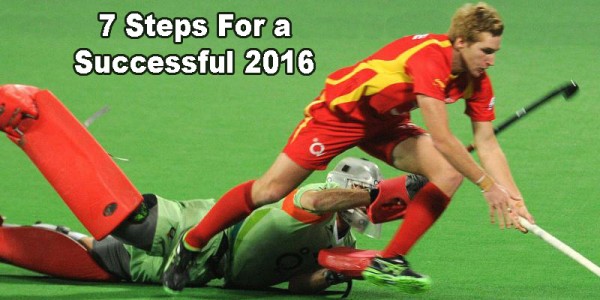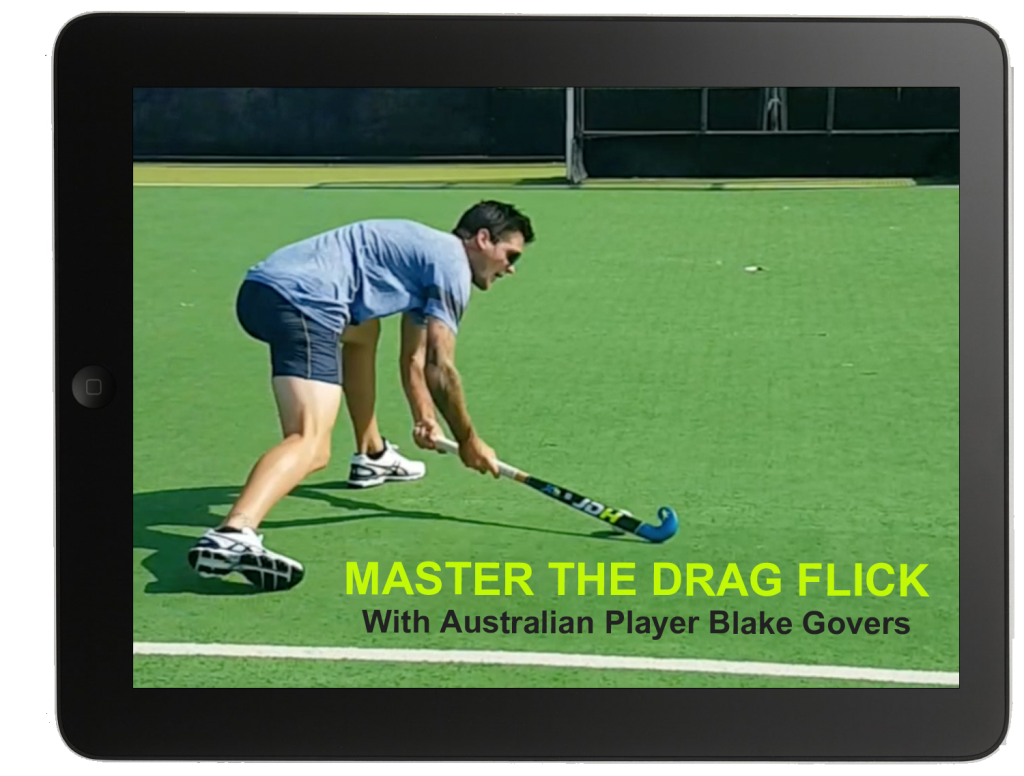7 Steps To Take For a Successful 2016
The start of a new year is the perfect time to look ahead and plan what we need to do to have a successful year. Whether it is for your hockey in 2016 or just your life in general.
“Those that fail to plan, plan to fail”
Most people that set new years resolutions give up by March, but this post is not about setting new years resolutions. And you don’t have to fail if you plan properly.
Very few people take the time to create specific and measurable goals. Even fewer have written their goals down. Even less people have a plan to achieve those goals.
Perhaps that’s why the majority of people fail to reach their goals?
Many dream about achieving great things but don’t have a map to get there. This is when failure is inevitable.
It’s like getting in a car without having an end destination or having an end destination but not having a map or GPS to get there.
Below I have outlined some of the vital steps that have not only helped me and my clients but are also habits which come from extremely successful people.
7 Steps For a Successful 2016
Step 1: Get into the right state
You absolutely MUST be in a positive state of mind when setting goals. You need to be thinking clearly and feeling good. If you are not, then you must change your mental state. I teach my clients how to do this in a matter of seconds.
When setting goals, you want to use your imagination just like when you were 5 years old, with no limits. No fear.
Most people will prevent setting big goals because of their limiting beliefs, such as “I am not good enough” or “what if I don’t reach it.”
Basically they are too scared to fail so they don’t set any big goals at all.
Our beliefs are mostly unconscious (we are not aware of them) and they affect our behaviour. So, if you suspect that you may have limiting beliefs that are holding you back then reach out to me or another mindset coach who can help you destroy those limiting beliefs because they WILL hold you back.
Step 2: Use a journal
Once you are in a good state of mind, make sure you have a pen and paper handy. You could use your computer or a white board if you prefer but you want to make it easy to review again later. 
There are a couple of scientific studies that indicate that those who write out their goals are more likely to achieve them.
Writing out your goals is a very important part of the process as it stimulates the brain in a different way than just thinking about your goals.
Putting pen to paper will not only force you to clarify exactly what you want but it will also help motivate you to take action.
This is one of the most important steps, because:
“A goal that has not been written down is just a dream”
Step 3: Start with long term first
What is your ultimate dream or goal? What do you want to do?
Most people only set short term goals and don’t think about the years to come.
My advice is that you MUST start by setting a long term first, even if that goal doesn’t seem possible right now. Without a long term goal, you have no idea of where you are trying to get to.
A long term goal is typically anything between 3-10 years.
A lot can happen in 3-10 years so go BIG! It’s better to go big and miss your goal but to go further than you thought you could, then to set small goals and not go as far.
Next, visualise what it will look like and how it will feel once you have achieved it. What emotions do you feel?
It also helps to write out your goals as though you have already achieved it.
Step 4: Break it down
Once you have set your long term goal, you can start to break it down into smaller more achievable steps.
Your shorter term objectives could be what you will do on a daily, weekly or monthly basis in order to move you a step closer to your long term goal.

You need to make all your goals as specific as possible.
For example: “I want to make a Queensland state team by September 2016” is much better than “I want to make a state team” or “I want to play hockey for my country by the time I am 20 years old” rather than “I want to play for my country”
It is very important to attach a time period onto every goal that you set, because humans naturally tend to procrastinate so you MUST give every goal a deadline. You can always adjust it later if you need to.
Step 5: Understand your why
Most people only focus on their short term goals (i.e. I must make this team right now), but to be great you need to have some direction and purpose.
Here are a couple of questions that could help you:
- Why do you play hockey?
- Why are your goals important to you?
- What will it mean to you to achieve your goals?
Without purpose and understanding you will never reach your goals because without it, when the going gets tough (which it will), you will give up more easily.
When you have focus, purpose and intention you are more likely to pursue through the challenges and setbacks that are inevitable to anyones success.
Step 6: Create an action plan
How are you going to achieve your goals?
What must you do?
Just like a coach plans tactical plays, you need to plan how you are going to reach your goals.
For each goal that you have set yourself, write down 3 steps you need to take.
For example if one of your goals is to get fitter then you could write: 
- I will do a weights session three times per week
- I will improve my 1km run time by 30 seconds in the next 3 months
- I will cut out junk food before games
You must have a plan, if you don’t know what or how to reach your goals then you need to seek advice and guidance from the right mentor who can help you.
Click here to get personalised advice from me.
Step 7: Take action
Setting goals is just the first part of being successful. The difference in results will come down to the daily action that you take. 
You need to review your goals regularly and visualize them on on a daily basis, making it part of a routine. Doing this will help your subconscious mind to create good habits and ways of making things happen.
It can also be helpful to share your goals with a close friend or a family member who can help to hold you accountable to them.
It is easy to get distracted so a great question that you can ask yourself daily is:
“What am I doing today to move closer to reaching my goals”
It is about the consistent action that you take which will determine whether you reach your goals or not. This is where a mindset coach like myself could help you with accountability.
Don’t under-estimate the power of the mind when you have focus and when the brain is working to your advantage.
Common mistakes of goal setting
- Not setting goals (probably because they don’t understand the importance of it)
- Not big enough goals (perhaps because of fear of failure or limiting beliefs)
- Not specific enough (be the best I can be is not specific enough)!
- No time period on goals (you need deadlines to aim for)
What’s your goal?
Don’t let doubt or past failure and setbacks hold you back anymore.
Reach out to me by requesting a free strategy session by skype or facetime so together we can set your goals and create an action plan of what you need to do to reach your goals in 2016 and beyond.
“Do what you’ve always done and you’ll get what you always got”
Enjoy this post?
Signup below to receive fresh hockey tips, motivation and exclusive content straight to your inbox
![]() We value your privacy and would never spam you
We value your privacy and would never spam you













